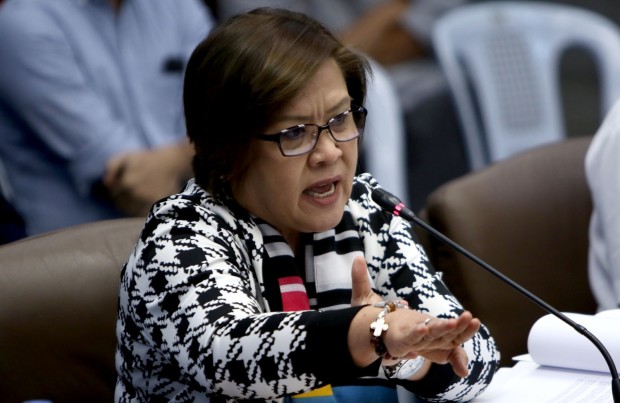De Lima seeks to expand, strengthen CHR
Sen. Leila de Lima is pushing for a charter that would expand and strengthen the mandate of the Commission on Human Rights (CHR) to address extrajudicial killings, enforced disappearances and other human rights violations.
The former justice secretary has filed a bill that aims to make the CHR, which she once headed, “the country’s premier human rights body vested with powers to respond in real-time to human rights violations against Filipinos here and abroad.”
De Lima made the proposal as the CHR pursued its investigation of alleged executions of suspected drug users and pushers in the Duterte administration’s war on drugs.
More than 2,000 have been killed in police antidrug operations and thousands more have been victims of suspected vigilante slayings.
Addressing a forum in Quezon City on Wednesday, CHR Chair Chito Gascon said the agency was not against crushing criminality, but anticrime efforts should not violate human rights. “The CHR still holds President Duterte accountable when he said he will not authorize human rights violations,” he said.
Gascon said Mr. Duterte should make a clear statement on battling crime and the methods to be employed. “Is it promoting a culture of impunity? Or is his message to fight criminality but always follow the law?”
De Lima said a charter to be established through Senate Bill 1230 would make the CHR “a partner” of the three branches of government in promoting and protecting human rights.
“To empower the CHR as an institution through a charter will reinforce the recommendations and recognition of its contribution to safeguard fundamental rights and freedoms, and serve the higher purpose of institutionalization of treaty commitments,” she said.
Among the key features in De Lima’s proposal are provisions that give the CHR fiscal autonomy to ensure its independence and “the unhampered application and protection of human rights principles under any and all possible circumstances.”
The CHR would be mandated to protect the rights of women and children and provide human rights education to soldiers, law enforcers and public school teachers.
It would be allowed to designate “human rights attachés” in select Philippine embassies and consulates to respond to the abuse of overseas Filipino workers.
The CHR would also have the power to issue “legal protective measures,” including restraining orders, injunctions, and cease and desist orders, even without court intervention. –WITH A REPORT FROM JHESSET O. ENANO
